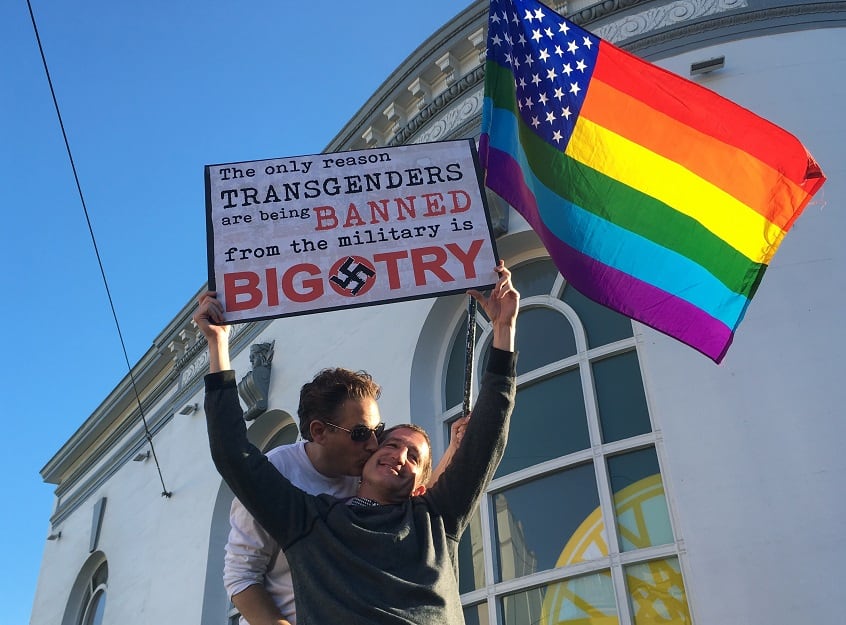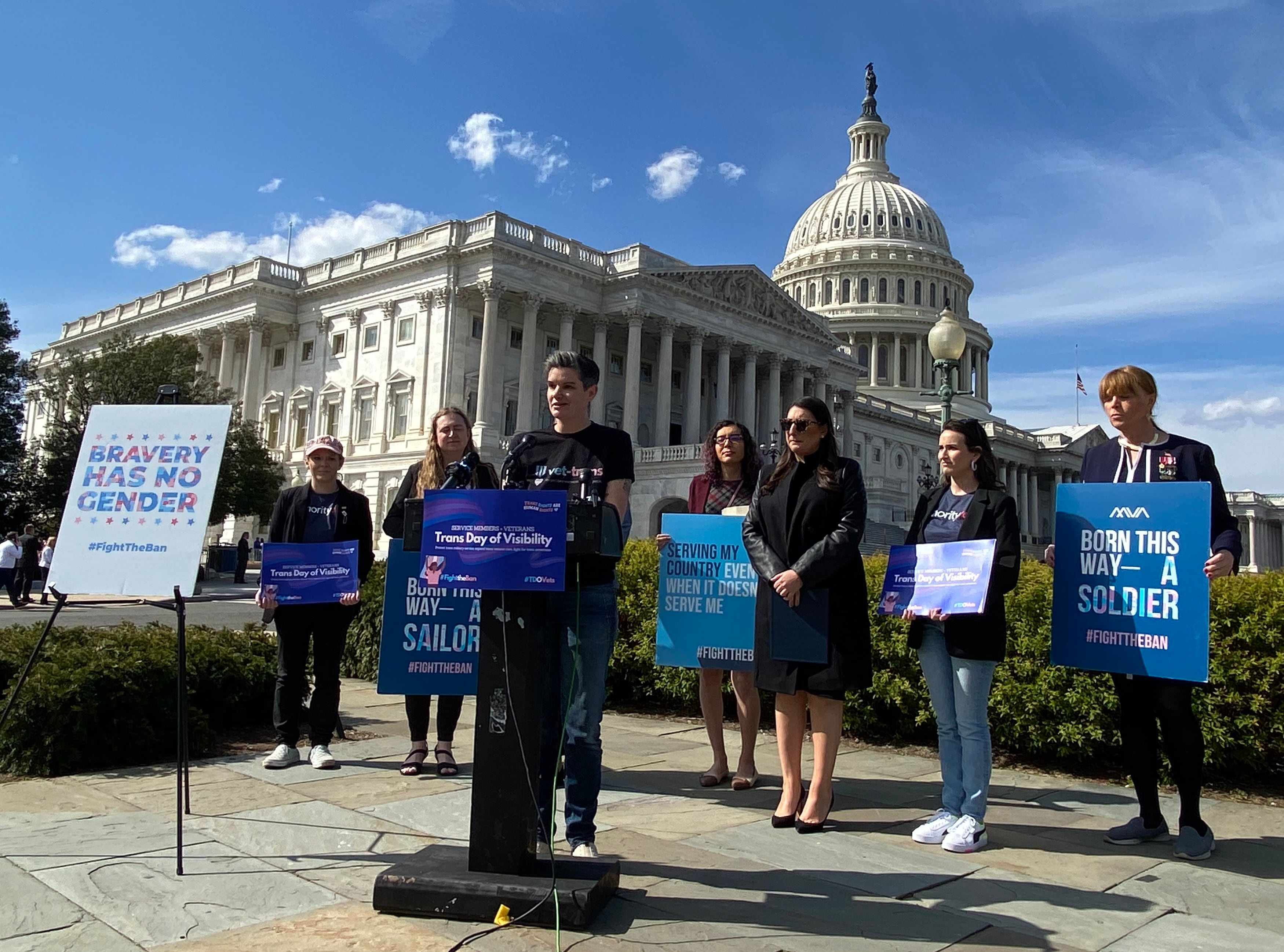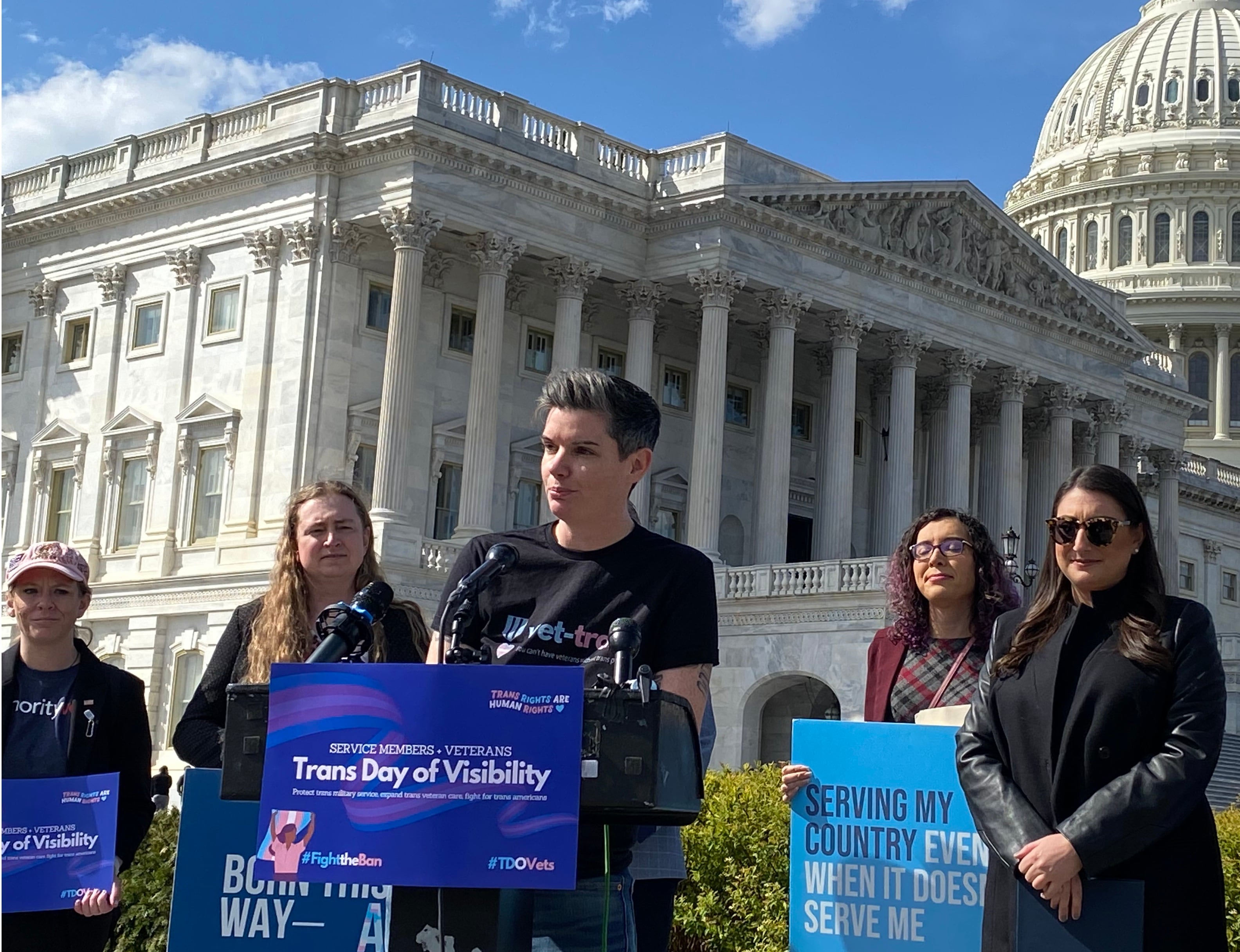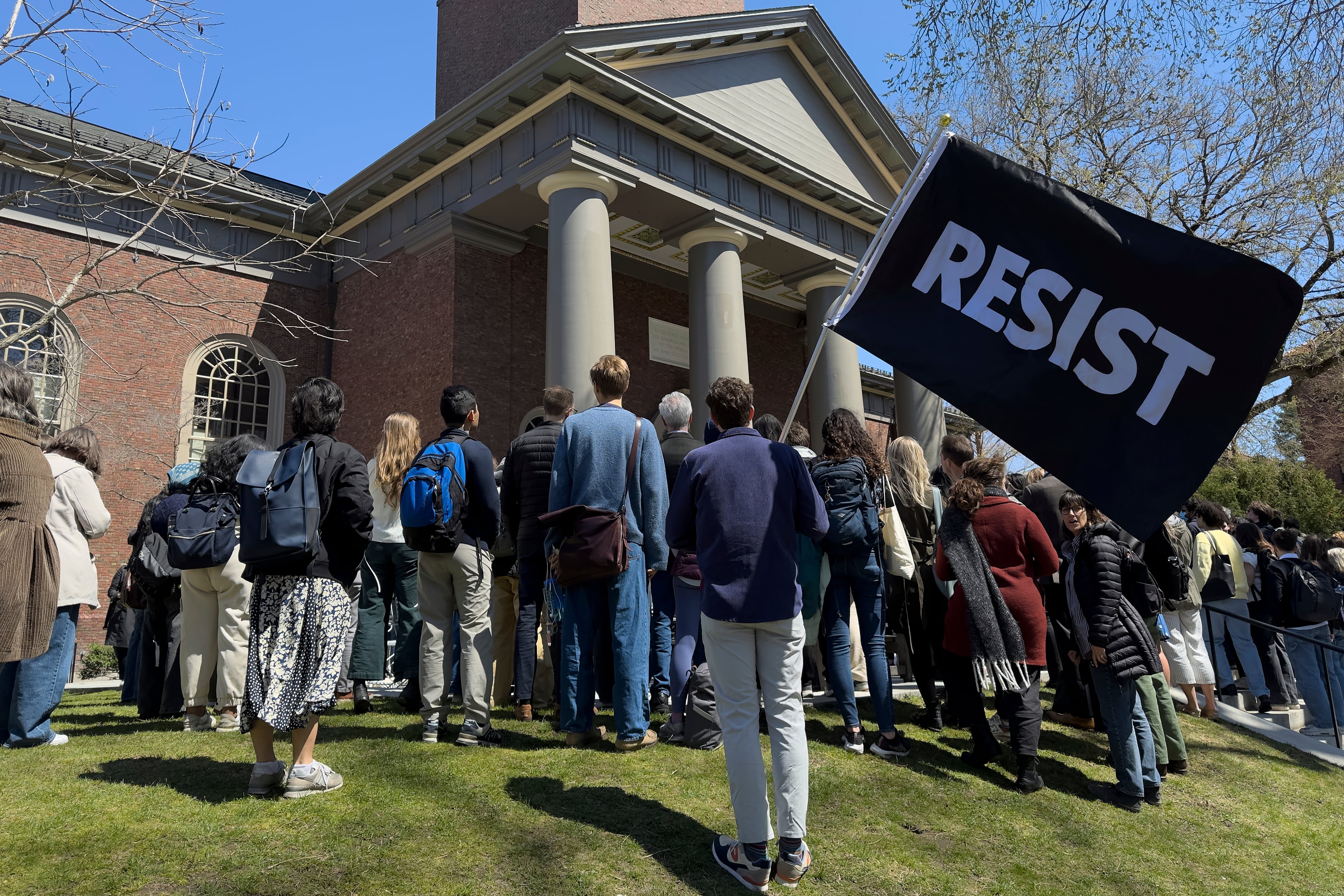Two years after Veterans Affairs leaders announced they would make “life saving” surgery options for transgender veterans available through department medical centers for the first time, no such operations have been performed, and VA officials admit there is no timeline for when they might begin.
The delay comes as a national debate has erupted over both the surgeries and transgender rights. Instead of alleviating some of the stress associated with that, Veterans Affairs officials are adding to the anxiety by failing to follow through with its promise, advocates say.
“The frustration level is extremely high,” said Cassandra Williamson, executive director of Transgender and Diverse Veterans of America. “This is impacting veterans’ mental health and well-being, and postponing some medically necessary procedures. We’re losing faith in VA in a big way.”
On June 19, 2021, Veterans Affairs Secretary Denis McDonough publicly vowed to start offering gender confirmation procedures through department facilities for the first time. Officials at the time drew praise from LGBTQ activists for the move, even as department officials warned that the rulemaking process could drag on for months.
RELATED

Now, those months have turned into years. In the meantime, at least 20 states have placed limits on gender confirmation surgeries, largely aimed at minors. Florida Governor and Republican presidential candidate Ron DeSantis recently compared the operations to “mutilation.”
In a statement, VA press secretary Terrence Hayes said department leaders are still committed to providing the surgery options to transgender veterans, and insisted that the larger political debate over transgender rights has not slowed down the rulemaking work.
But he also said there is no timeline for when the first surgeries may be scheduled. Officials are “moving ahead methodically because we want this important change in policy to be implemented in a manner that has been thoroughly considered” and “meets VA’s rigorous standards for quality health care.”
Past estimates from the National Center for Transgender Equality and other advocacy groups put the number of transgender veterans in America today between 130,000 and 150,000. VA officials have estimated that around 4,000 veterans nationwide may be interested in gender confirmation surgeries, also known as gender reassignment surgeries.
Conservative groups have disputed both the estimates of transgender veterans and the need for VA to provide the surgery options, especially in states where it may run afoul of local laws.
Although gender confirmation surgeries are not yet available through VA, the department does offer hormone therapies and other transgender-specific medical options.
But advocates say that isn’t enough, and question the reasons behind the delay.
RELATED

In late March, 157 outside groups — including Minority Veterans of America, Student Veterans of America and Iraq and Afghanistan Veterans of America — sent a letter to McDonough calling the continued delay over transgender surgery availability “not just an equity issue, but also a safety issue.” They said that offering the operations could help cut down on depression and suicide rates among transgender veterans.
Lindsay Church, executive director and founder of Minority Veterans of America, called the lack of progress on the issue disheartening.
“When they announced this plan, they said it would save lives,” Church said. “So where is the action now that trans people’s lives are on the line?”
Church, who identifies as non-binary, was given breast implants years ago as part of reconstructive surgery from medical complications that arose during their time in the Navy. Earlier this year, during a medical appointment with VA, Church found out those implants had ruptured, causing a series of new health problems.
“I couldn’t take them out earlier, because that falls under the transgender surgery options,” Church said. “So the government can give you breast implants to affirm the gender they think you are, but they won’t help you with other options unless it’s a medical emergency.”
Williamson, a Navy and Marine Corps veteran, said she has heard similar stories from other transgender veterans. “We’re hearing that having these surgery options would have helped greatly, but for now, these veterans are still waiting.”
House Veterans’ Affairs Committee ranking member Mark Takano, D-Calif., said he is “concerned about the two-year delay” regarding the surgeries and hopes for resolution on the issue soon.
However, he said he still has faith that McDonough and his administration is committed to “providing much-needed healthcare to transgender veterans” in the near future.
Veterans Affairs health care websites promise that transgender veterans who reach out to the department will “receive affirming care and services to achieve optimal health and well-being.” But for now, the list of services still excludes gender confirming surgeries.
“I just keep telling our folks to keep fighting, to stay on this,” Williamson said. “We understand the regulatory process does take time. But we didn’t expect it to be this long.”
Leo covers Congress, Veterans Affairs and the White House for Military Times. He has covered Washington, D.C. since 2004, focusing on military personnel and veterans policies. His work has earned numerous honors, including a 2009 Polk award, a 2010 National Headliner Award, the IAVA Leadership in Journalism award and the VFW News Media award.




